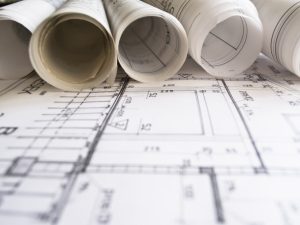Landmatters co-op is a low impact community in Devon. We’re seeking letters of support for a new round of planning application. Letters of support are invaluable commendations and hugely boosting for a project’s prospects – and morale.
In August 2007 we received 3-year’s temporary planning permission for our permaculture project and low-impact residential community. We then received another 5 years, which expires in April 2016. At the beginning of February we will be submitting an application to South Hams District Council asking for permanent planning permission.
If you are able to write a letter of support, please make it out to South Hams District Council, as we don’t have the name of our case officer yet, but send it to our Landmatters address (Landmatters Co-operative Permaculture Project, Allaleigh, Blackawton, Totnes, Devon, TQ9 7DL, UK) or email [email protected]. Also, please make clear in your first sentence that you are in support of Landmatters planning renewal. Descriptions of your personal experience of Landmatters will be especially beneficial.
Where they are relevant to you, please include such points as:
What benefits you think Landmatters has for the local and wider community
What value we have to you (eg. education; access to the countryside; sharing of skills and information about sustainable living; produce)
Our worth and credibility as an example of permaculture
Why you think we should be allowed to continue
Even if you only state your support without going into further details it is still of benefit.
Deadline: please send to us by the end of January
(afterwards it is still possible to submit directly to South Hams Council.
Many thanks, we greatly appreciate your support!
Best wishes from all at Landmatters

About Landmatters
Landmatters is a registered Co-operative, with primary and secondary rules. We bought the site in 2003 and we’ve been living here since 2005. In 2007 we got temporary planning permission for 3 years for 8 low-impact dwellings. In April 2011 we were given a further 5 years’ permission. There are currently 9 adults and 7 children (all between 0 and 13) resident on site, and often visiting volunteers (WWOOFERs). We aim to use permaculture design methods in the planning of our activities and land use.
The land is comprised of approximately 42 acres of which 17 acres are semi-natural ancient woodland, 22 acres are pasture and the remainder is naturally regenerating scrub and hedgerows. There is a stream along the most north-westerly boundary. We’re off-grid for water (rainwater harvesting and borehole) and electricity (solar and wind). We have communal gardens, pigs, goats, chickens and bees.
Our current constitution (written in 2002) states that Landmatters aims “to manage all land in a sustainable fashion so as to enhance the diversity, productivity and beauty of the landscape in accordance with the principals of organic horticulture, conservation and permaculture, so providing a rich, healthy, stable and supportive environment for the benefit and happiness of present and future generations”.

Practicalities
1. Successful prospective members are invited to take part in a minimum 6 month trial period. If after this trial all parties are happy and would like to proceed with full membership, this will be granted.
2. If granted full membership you will pay a membership fee of £3500 each, payment schedule negotiable.
3. New members are asked to have completed a full Permaculture design course.

Group Commitments
4.The communal work commitments at present are approximately twelve hours a week.
5. We are committed to reducing our carbon footprint (at the last reckoning we were at 1.3 planets). We are limited to 5 vehicles by our planning permission, and our transport policy requires that all vehicles are shared. Visitors are asked to come by public transport whenever possible. We try to minimise our own use of vehicles.
6. Decisions are made, and meetings are run, by consensus, and the desire and ability to co-operate is essential.
7. Meetings happen twice a week. “Councils”, which all members are required to attend, are every 6 weeks or so. Councils are a method of airing interpersonal issues so they don’t linger in the community.
8.We have a process of conflict resolution that members agree to adhere to on joining.

Activities/Work at Landmatters
9. We are developing land-based livelihoods, as required by our planning consent, and also so that we spend the majority of our time on site. Some people work a day or two per week off site, others do occassional casual work, but commuting to a job everyday is not allowed.
10. Our main activities at present (though this is not an exhaustive list) are: building infrastructure, horticulture, forestry, land management for biodiversity, tours and open days, educational courses, working with volunteers, looking after our children, sheep and goats, linking with other relevant orgs, learning about and practicing permaculture, and fostering a connection to the natural environment in ourselves, our children and visitors.
11. We have a public profile, are open to visitors, host courses, and are a Permaculture Association of Britain Learning And Network Demonstration (LAND) site. At various times people come along to research and observe our activities.
12. The project is constantly evolving, money has to be fundraised or earned, seasons set the pace and there is always too much to do.
If you’re still reading this we can also tell you that the landscape is stunning, the views enormous, and the land diverse and very beautiful.














